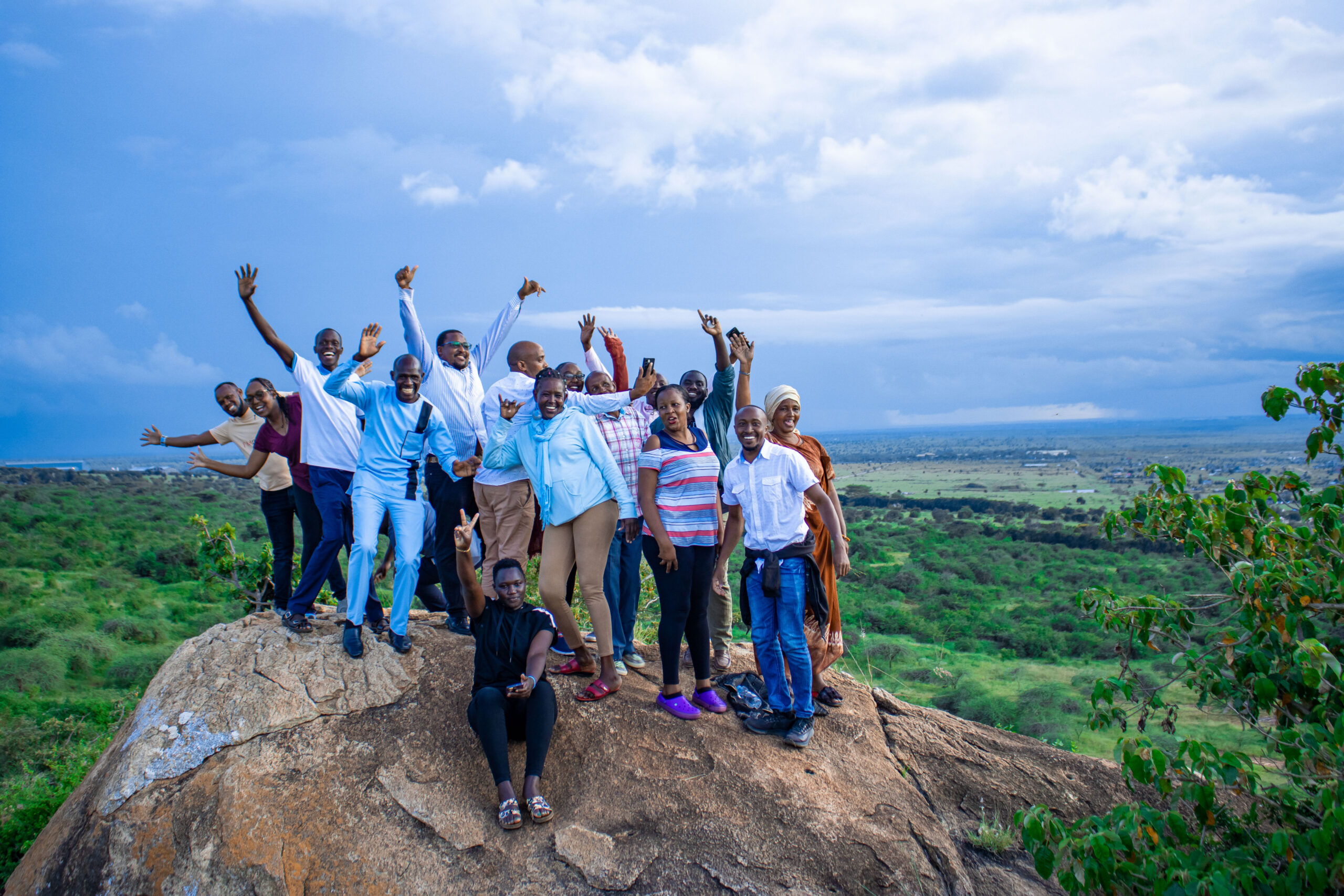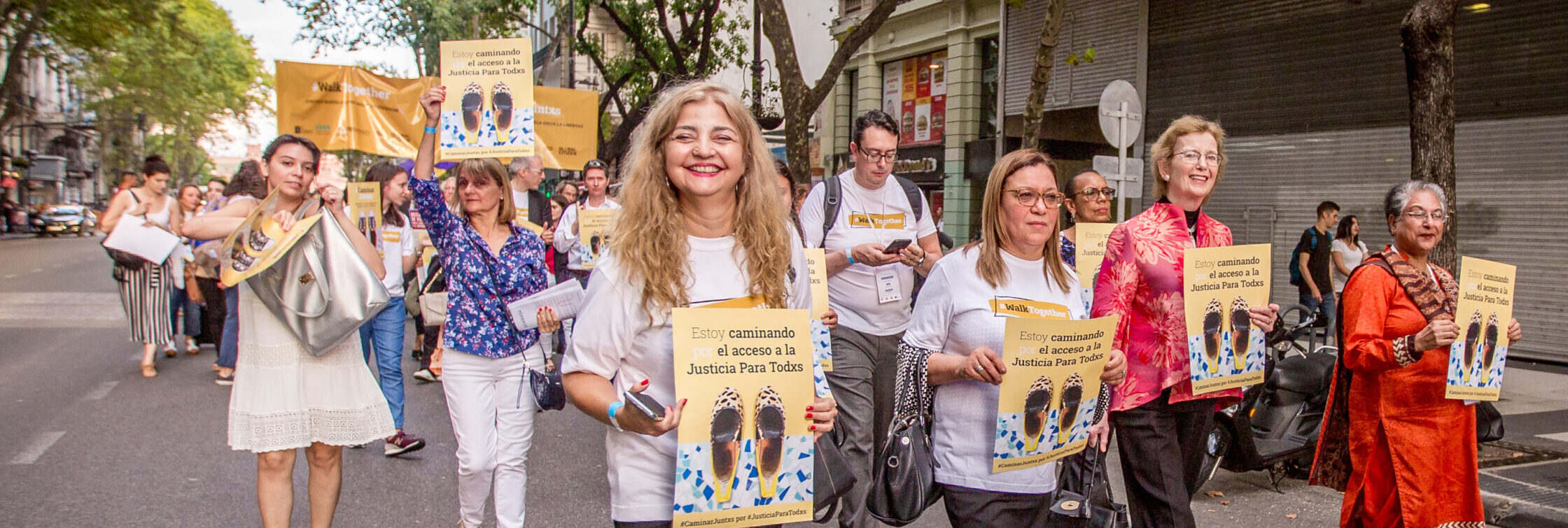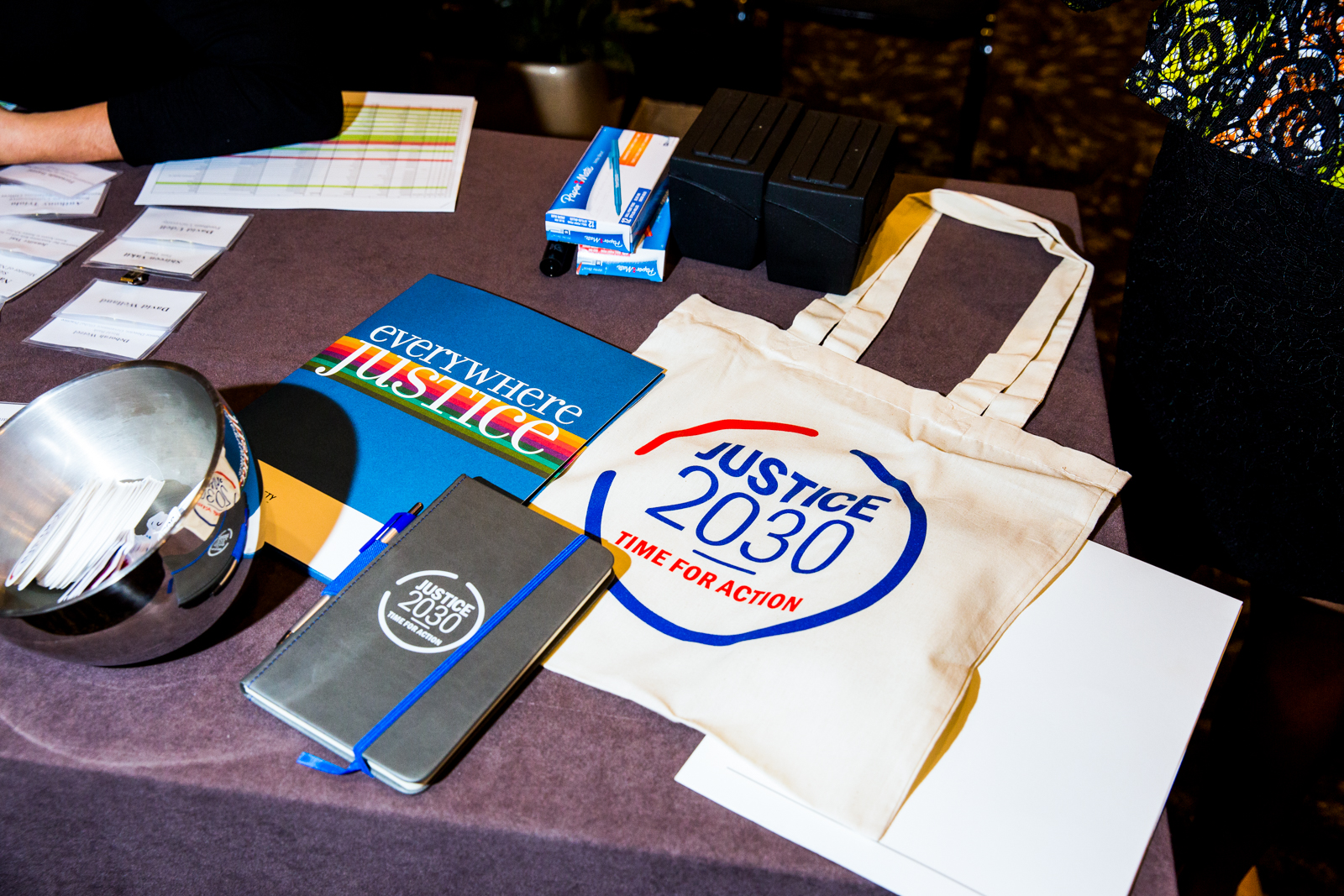Through collective action, our members build a more just and sustainable world together.

Members of the Grassroots Justice Network believe in a world where all people can use the law to defend their rights and take part in decision-making. This includes communities affected by carbon markets.
Drawing on member experience responding to carbon projects around the world, our network has united around 6 principles necessary to make carbon projects fair.
Put simply, carbon payments cannot be a substitute for reducing avoidable emissions. And all carbon projects must respect the rights and leadership of the communities on whose land they take place.
Justice in the African Union (AU) 2063 Agenda
Legal Empowerment Network members in Sub-Saharan Africa are calling for a justice target in the next ten-year phase of the AU 2063 agenda, alongside demands for increased financing and recognition of community-based paralegals in the continent.
Ibero-American Access to Justice Agreement
Network members in Latin America have been advocating for the last 3 years to build regional norms on people-centered justice that center legal empowerment. The Conference of Ministers of Justice of Ibero-American Countries (COMJIB) has opened a process to build those norms engaging civil society participation.
Over the last few years, Network members have been working on building a common understanding and defining priorities to improve access to justice in the region.
Land and Environmental Justice
Network members are coming together to ensure communities facing environmental harm have the power to determine what happens to the places they live and to lead a transition to a sustainable economy. This includes fighting for communities to be able to say yes or no to industrial development, and have access to the resources, information, and security necessary. You can see more about our early work building this movement.

Powered by Network members, the Justice for All campaign advocated for financing and stronger protections for grassroots justice defenders. Together, we unlocked new sources of funding and achieved policy changes at the national level.
While the campaign has ended, our work is not over. We continue the fight by ensuring that grassroots voices are prioritized in high-level policy spaces and in the implementation of the 2030 Sustainable Development agenda.
Our upcoming e-learning course shares key lessons learned from the campaign about advocating for funding for grassroots justice work. Pre-register for the course now.




